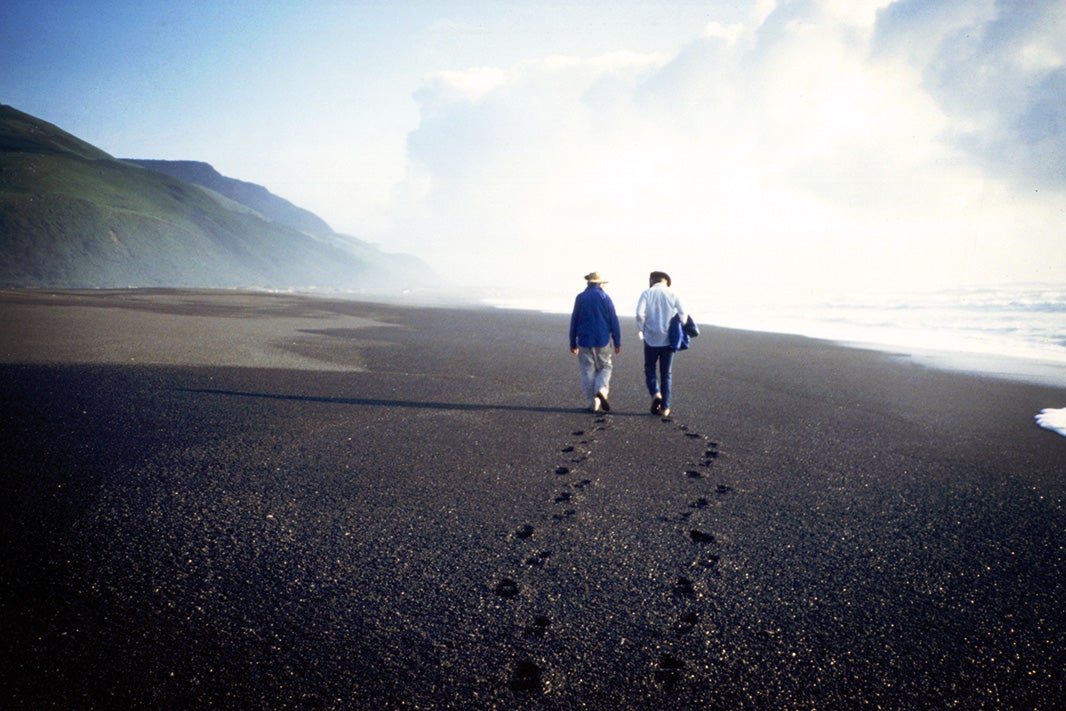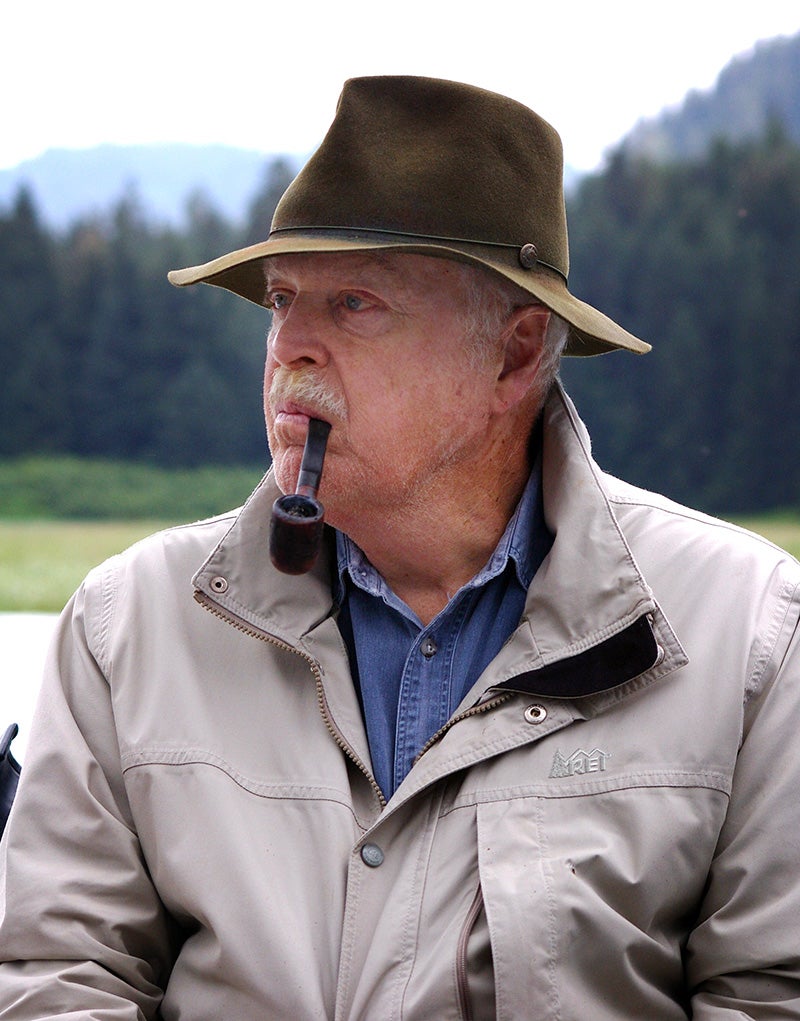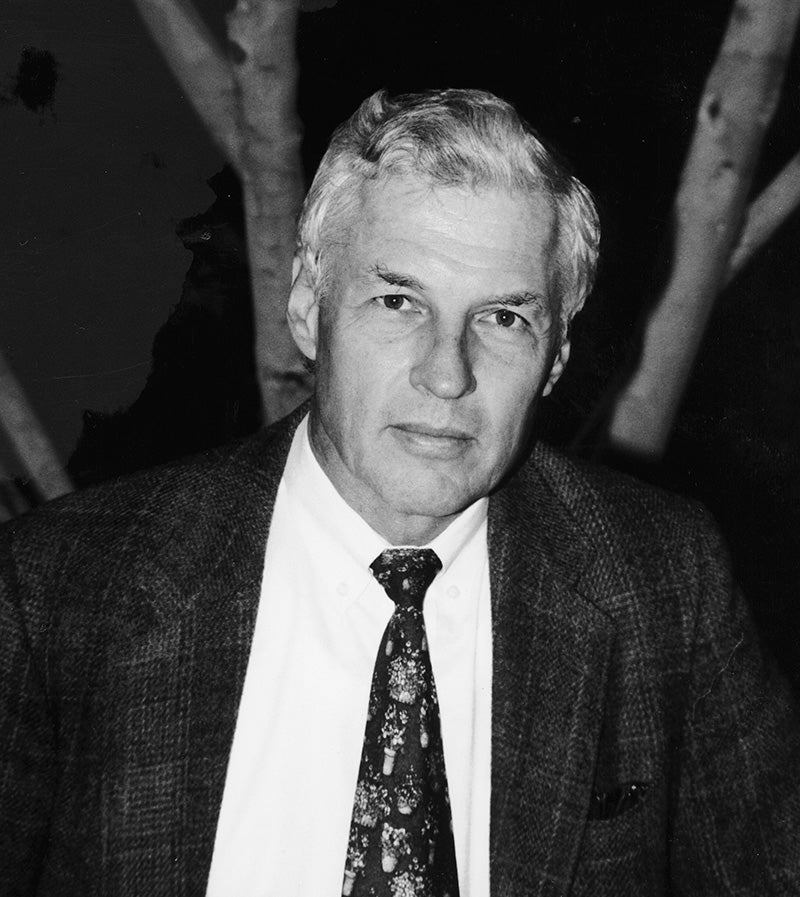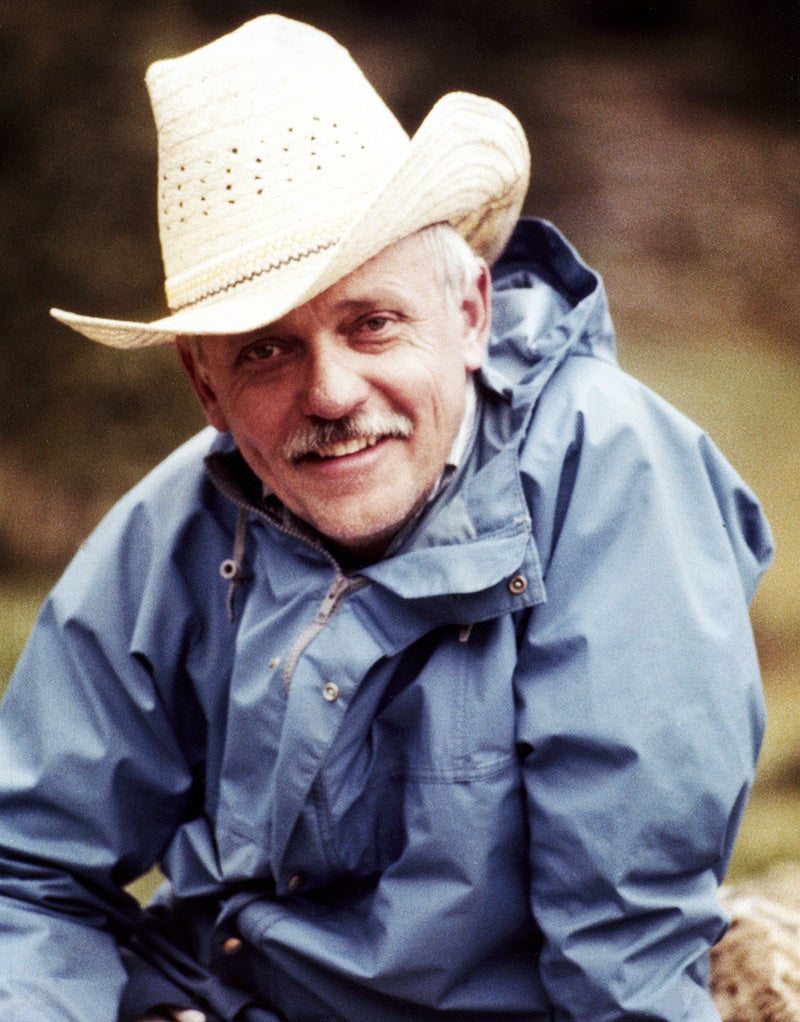The Founders of Earthjustice

As the modern environmental movement was taking shape across the United States in the 1960s, the Sierra Club’s tenacious legal committee was taking on an ever greater number of cases to protect the country’s revered landscapes and wildlife. Phil Berry chaired the committee, and two of its members were Fred Fisher and Don Harris.
In 1971, the three men founded the Sierra Club Legal Defense Fund, dedicated to fighting in court and in Washington, D.C., on behalf of the Sierra Club and other environmental groups.
In the decades since, our name has changed to Earthjustice, and we've expanded to 15 offices and a staff of more than 600. Our achievements today are firmly rooted in the legacy of our founders Phil, Fred and Don, who, though they have passed away, continue to inspire us.
“All kinds of organizations throughout the country now have a way of making their impact felt in the court system … What we do gives people a judicial remedy in the courts. And for small organizations across the country who have no lawyers to call upon or money to pay for them, we provide that representation — to hundreds, many hundreds of organizations.”
— Fred Fisher, on the founding of the Sierra Club Legal Defense Fund
Phillip S. Berry
Among the first to see the role of lawyers and the courts in protecting environmental values

“Once we caught on that environmental litigation could be extremely helpful, [the legal committee] grew … [We] talked from the very beginning about having an organization with a good track record — and of course all that’s happened.”
— Phil Berry, reminiscing on the early years in a 2005 interview
Berry’s father took him on a backpacking trip to Yosemite National Park where he fell in love with the Sierra Nevada. The following year, at age 13, the precocious Berry wrote to the leader of the Sierra Club’s wilderness expeditions, David Brower, who let him tag along on a 6-week burro excursion. Brower would later become Berry’s lifelong mentor.
"Dave, at campfires, would talk about … how through enjoying these [natural wonders] we acquired an obligation to fight for them if threatened," Berry recalled.
Berry graduated from Stanford University in 1958 and joined his father’s law practice. Around the same time, Brower became the Sierra Club’s executive director, prompting Berry to get more involved in the group’s program.
Phil Berry was born in Berkeley, California, in 1937.
In 1966, Berry became the chair of the Sierra Club Legal Committee. He joined the Sierra Club’s board of directors in 1968, and the following year Berry was elected president — the youngest Sierra Club president at that time. He recruited his law school friend Fred Fisher and Fisher’s co-worker Don Harris to the legal committee. After several years of taking cases part-time and pro-bono, the three men created the Sierra Club Legal Defense Fund (SCLDF) in 1971. The time was right; America had just had its first Earth Day, passed the National Environmental Policy Act and established the U.S. Environmental Protection Agency.
Berry was known for his informed irreverence and disdain for political posturing. At the Sierra Club’s annual awards banquet, he would give his own “alternative awards” to misbehaving politicians. In 1970, Berry famously challenged Richard Nixon during a meeting at the White House by telling the president that he just didn’t believe the same things conservationists did. Berry was a member of SCLDF’s board from 1978 until 1990, and he served a second term as president of the Sierra Club beginning in 1991. Berry passed away in September 2013 after more than 60 years of spirited contributions to the Sierra Club and Earthjustice.
“I’ve always viewed environmental law as one of the frontline divisions in the conservation fight,” Berry said. “Earthjustice played an enormous role — in my judgment, the leader of all of them.”
R. Frederic Fisher
A legendary leader with a penchant for persuasion and bold action

“They were just concerned citizens who were determined to do something and were outraged like everybody else. And because they were lawyers, they felt they had a special ability to help. And they surfaced. They surfaced all over the country.”
— Fred Fisher, on the hundreds of lawyers across the country who volunteered their services in the 1960s
Fred Fisher was born in 1937 in St. Louis, Missouri, and graduated in 1958 from Principia College in Illinois. While attending Stanford Law School, he took the first of many backpacking trips in the Sierras with his classmate Phil Berry, igniting Fisher’s passion for conservation.
Fisher joined the San Francisco law firm Lillick, McHose & Charles in 1965 where he met co-worker Don Harris. Though his specialty was maritime law, Fisher donated his time and expertise along with Berry and Harris when the Sierra Club challenged the Walt Disney Corporation in the Mineral King case.
Fisher became the founding vice president of the Sierra Club Legal Defense Fund, and he was board chair from 1995 to 2000. He was an active and influential board member of Earthjustice until his death in August 2005. At Fisher’s memorial service, Harris recalled, “He was a true leader, as an attorney, as an outdoorsman, as a conservationist and as a teller of tall tales, most of them true. He possessed a quick tongue, a brilliant mind and a penchant for bold action.”
Fisher’s humor, charm and powers of persuasion were legendary. One of Fisher’s early cases established the public’s right to access California’s navigable streams, even if they run through private property. In a rare case of judicial participation, Fisher convinced a judge to paddle with him in a canoe down the length of the Russian River. His heroics in and out of the courtroom made him the ideal person to help set Earthjustice’s ambitious legal and social agendas.
Fisher once said, “We provide representation to many hundreds of organizations and that gives people hope. It gives them a sense of participation in the process. It gives them a weapon to use for the common good.”
H. Donald Harris
A driving intellectual force behind the organization

“We get people coming in the door who have serious conservation problems, serious water problems, serious pollution problem. We give them a voice which they otherwise couldn’t afford.”
— Don Harris, on the founding of the Sierra Club Legal Defense Fund
Don Harris was born in Johannesburg, South Africa, and moved to the United States in the 1930s. At Harvard University, he met and married his wife Janet. He and Janet moved to San Francisco in 1959, and Harris joined Lillick, McHose & Charles where he worked alongside Fred Fisher, an ardent conservationist.
He first encountered Phil Berry at a Trout Unlimited meeting, and Berry, who was deeply involved in the work of the Sierra Club, quickly drafted his fellow environmentalists to volunteer with the organization’s legal team.
“Berry, Fisher and myself, we just got mad about the way things were going — forests getting torn up, streams getting polluted. We wanted to see if there was something we could do about it,” Harris said.
The attorneys soon had so much legal work for the Sierra Club they barely had time for anything else. “Once the word got out there was free legal advice for the environment, the cases poured in the door from all over the country,” Harris said.
After the men secured a grant from the Ford Foundation, they were able to devote much more time to conservation causes through the Sierra Club Legal Defense Fund. Harris served on the board of the fund — later Earthjustice — for 35 years, from its inception until 2006. He was board chair from 1971 to 1989.
Harris also racked up an impressive list of personal legal victories, including trying and winning the first-ever case brought in the U.S. under the National Environmental Policy Act to stop engineers from turning Arizona’s Gila River into a concrete channel. After decades of cutting-edge legal work, Harris passed away in early 2015.
Harris said of his role in founding Earthjustice, “The conservationists of the world are passionate people, and we gave them a way to express that passion and a way for them to make changes in things we all care about very much.”